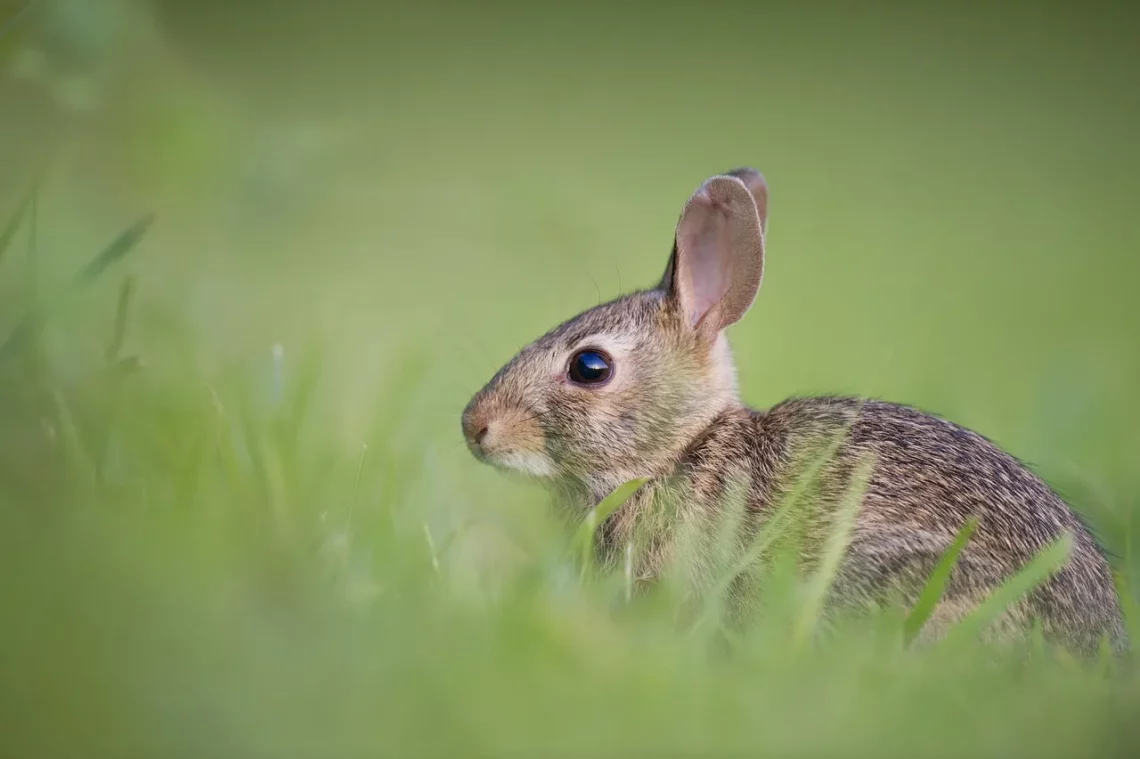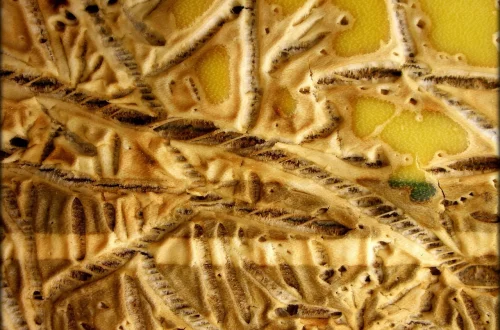
Understanding Why Your Rabbit is Shaking: Causes and Solutions
Rabbits are beloved pets known for their playful personalities and gentle nature. However, as a rabbit owner, you may sometimes encounter alarming behaviors that raise concerns about your pet’s well-being. One of the more unsettling actions a rabbit may display is shaking. While it can be distressing to witness, understanding the reasons behind this behavior is crucial for providing the best care possible.
Rabbits are prey animals, meaning they have evolved to exhibit certain behaviors as a survival mechanism. Shaking or trembling can be a manifestation of various underlying issues, ranging from fear and stress to more serious health conditions. As a responsible pet owner, it’s essential to observe your rabbit closely and assess their environment and health to determine the cause of this behavior.
In this article, we will explore the various causes of shaking in rabbits, potential solutions to address these issues, and how to ensure your furry friend remains happy and healthy. By gaining insight into your rabbit’s behavior, you can create a nurturing environment that meets their physical and emotional needs, ultimately enriching their lives and strengthening the bond you share.
Common Causes of Shaking in Rabbits
Shaking in rabbits can stem from a variety of causes, and recognizing these can help you pinpoint what your pet might be experiencing. One of the most common reasons for trembling is fear or anxiety. Rabbits are naturally skittish animals; loud noises, sudden movements, or unfamiliar environments can trigger a stress response. If your rabbit is shaking during a thunderstorm or when faced with a new environment, it’s likely a sign of fear.
Another potential cause is pain or discomfort. Just like any other animal, rabbits can experience health issues that cause them to shake. Conditions such as dental problems, gastrointestinal distress, or injuries can lead to shaking as a response to pain. It’s essential to monitor your rabbit for other signs of illness, such as lethargy, loss of appetite, or changes in behavior. If you suspect your rabbit is in pain, it’s crucial to consult a veterinarian for a proper diagnosis and treatment.
Environmental factors can also play a significant role in shaking. An uncomfortable living situation, such as extreme temperatures, poor hygiene, or overcrowding, can lead to stress and anxiety in rabbits. Ensuring your rabbit has a safe, clean, and suitable habitat can help reduce their anxiety levels.
Sometimes, shaking may be linked to neurological issues or other serious health conditions, which can be more challenging to identify. Conditions such as seizures or neurological disorders can cause shaking and should always be evaluated by a veterinarian promptly. Understanding the underlying cause of your rabbit’s shaking is essential for addressing the behavior effectively and ensuring their overall health and happiness.
How to Calm an Anxious Rabbit
If your rabbit is shaking due to anxiety or fear, implementing calming strategies can help ease their distress. First and foremost, creating a secure and quiet environment is essential. Make sure your rabbit has a designated area where they can retreat to feel safe, away from loud noises and sudden movements. This safe space should be equipped with cozy bedding, hiding spots, and familiar toys to provide comfort.
Gradual desensitization can also be an effective way to help your rabbit cope with their fears. If your rabbit is scared of certain sounds or activities, try to expose them to these stimuli gradually and in controlled environments. For instance, if your rabbit shows fear during thunderstorms, you can play recordings of thunder at a low volume while providing treats and positive reinforcement, gradually increasing the volume over time.
Additionally, you can enhance your rabbit’s environment with enrichment activities. Providing toys, tunnels, and opportunities for exercise can help alleviate boredom and anxiety. Regular playtime can also strengthen the bond between you and your rabbit, fostering a sense of trust and security.
Another option is to consider natural calming aids. Some rabbit owners have found success with herbal remedies or calming supplements designed for pets. However, it’s essential to consult with a veterinarian before introducing any new products to ensure they are safe and appropriate for your rabbit’s specific needs.
Ultimately, patience and consistency are key when calming an anxious rabbit. Each rabbit is unique, and it may take time to find the right combination of strategies that works for your pet. By providing a loving and secure environment, you can help your rabbit feel more at ease and reduce their shaking.
Signs of Health Issues in Rabbits
While shaking can often be attributed to fear or anxiety, it’s crucial to remain vigilant for any signs of health issues that may be contributing to this behavior. Observing your rabbit for additional symptoms can provide valuable insights into their overall well-being.
One of the first signs to look for is changes in appetite. If your rabbit suddenly refuses to eat or drink, it may indicate an underlying health problem. Dental issues, such as overgrown teeth or dental abscesses, can cause pain while eating, leading to a decrease in food intake.
Changes in behavior are also significant indicators of health issues. If your normally active rabbit becomes lethargic, hides more often, or shows a lack of interest in social interactions, it may be time to consult a veterinarian. Other signs to watch for include abnormal droppings, vomiting, or difficulty with movement, which can all indicate health problems.
Pay attention to your rabbit’s body language as well. If they are shaking along with other signs of distress—such as grinding their teeth, hunched posture, or prolonged periods of inactivity—it may be a red flag that something is wrong.
Regular veterinary check-ups are essential for maintaining your rabbit’s health and catching any potential issues early on. Your veterinarian can provide guidance on proper nutrition, dental care, and overall wellness to ensure your rabbit remains in good health.
If you notice any concerning symptoms or if shaking persists, do not hesitate to seek veterinary advice. Early intervention can make a significant difference in your rabbit’s health and quality of life.
Creating a Safe and Enriching Environment
To reduce the likelihood of shaking in your rabbit, it is essential to establish a safe and enriching living environment. Start by ensuring that your rabbit’s habitat is spacious, clean, and free from hazards. A well-structured living space allows your rabbit to explore and express their natural behaviors.
Provide plenty of hiding spots, such as tunnels or boxes, where your rabbit can retreat and feel secure. These hiding spaces are crucial for a rabbit’s mental well-being, as they allow them to escape perceived threats and manage their stress levels.
Incorporating vertical space, such as shelves or ramps, can also create a more engaging environment for your rabbit. Rabbits are naturally inclined to jump and explore, so offering different levels can keep them physically active and mentally stimulated.
Regularly rotating toys and introducing new items can prevent boredom and promote playfulness. Chew toys, puzzle feeders, and interactive toys can keep your rabbit entertained while also satisfying their natural chewing instincts.
Finally, ensure your rabbit has ample opportunities for social interaction, whether with you or other compatible pets. Rabbits are social animals and thrive on companionship. Spending quality time with your rabbit, engaging in gentle play or simple bonding activities, can strengthen your relationship and help alleviate stress.
By focusing on creating a safe, clean, and stimulating environment, you can significantly improve your rabbit’s overall well-being and reduce the chances of shaking. Remember, a happy rabbit is a healthy rabbit!
In conclusion, while shaking in rabbits can be concerning, understanding the various causes can help you address the issue effectively. If you suspect your rabbit’s shaking is due to health concerns, please consult a veterinarian for advice. This article is not a substitute for professional medical advice, and any health issues should be discussed with a qualified veterinarian.




